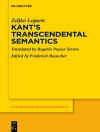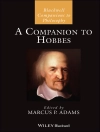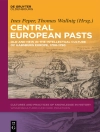In ‘The Essential Works of Robert G. Ingersoll, ‘ readers are presented with a compelling anthology of the orator’s most significant writings, showcasing his passionate advocacy for free thought, skepticism, and secularism during the late 19th century. Ingersoll’s eloquent prose and rhetorical prowess shine through in essays that challenge religious dogma and promote the liberation of human intellect. This collection highlights his unique approach, blending philosophy, politics, and personal anecdote, making his arguments not only logical but deeply resonant, all while situated within the broader intellectual landscape of the Gilded Age, a time marked by dramatic social and technological upheaval. Robert Green Ingersoll, often referred to as the ‘Great Agnostic, ‘ was a prominent lawyer, orator, and political activist in post-Civil War America. His early encounters with religion, coupled with his advocacy for civil rights and separation of church and state, shaped his critical perspectives. Ingersoll’s formidable public speaking skills and fearless intellect earned him both admiration and controversy, allowing him to become a leading voice for secularism at a time when such views were often marginalized. This anthology is highly recommended for anyone seeking to understand the foundations of modern skepticism and the role of secularism in society. Ingersoll’s incisive insights not only provoke thought but also inspire courage in questioning established norms, making this collection an invaluable resource for readers interested in philosophy, history, and the evolution of free thought.
Tentang Penulis
Robert Green Ingersoll (1833–1899), also known as ‘The Great Agnostic, ‘ was a renowned American orator, lawyer, and freethinker. His eloquence in advocating for free thought, civil liberties, and rationalism positioned him as a leading figure in the Golden Age of Freethought during the late 19th century. Born in Dresden, New York, Ingersoll was a Civil War veteran and held the rank of colonel. After his service, he pursued a career in law, and his legal expertise coupled with his charismatic orations bolstered his public reputation. Ingersoll wrote extensively, challenging the religious orthodoxy of his day, advocating for separation of church and state, and promoting scientific and humanistic values. His lectures and speeches were widely attended, with ‘The Essential Works of Robert G. Ingersoll’ serving as a definitive collection that embodies his intellectual legacy and his literary flair. Ingersoll’s rhetorical prowess and impassioned arguments were not just central to the freethought movement but also influenced the secular and progressive discourse of his time. His works continue to be appreciated for their advocacy of freedom of thought and expression, as well as for their artistic vigor.












